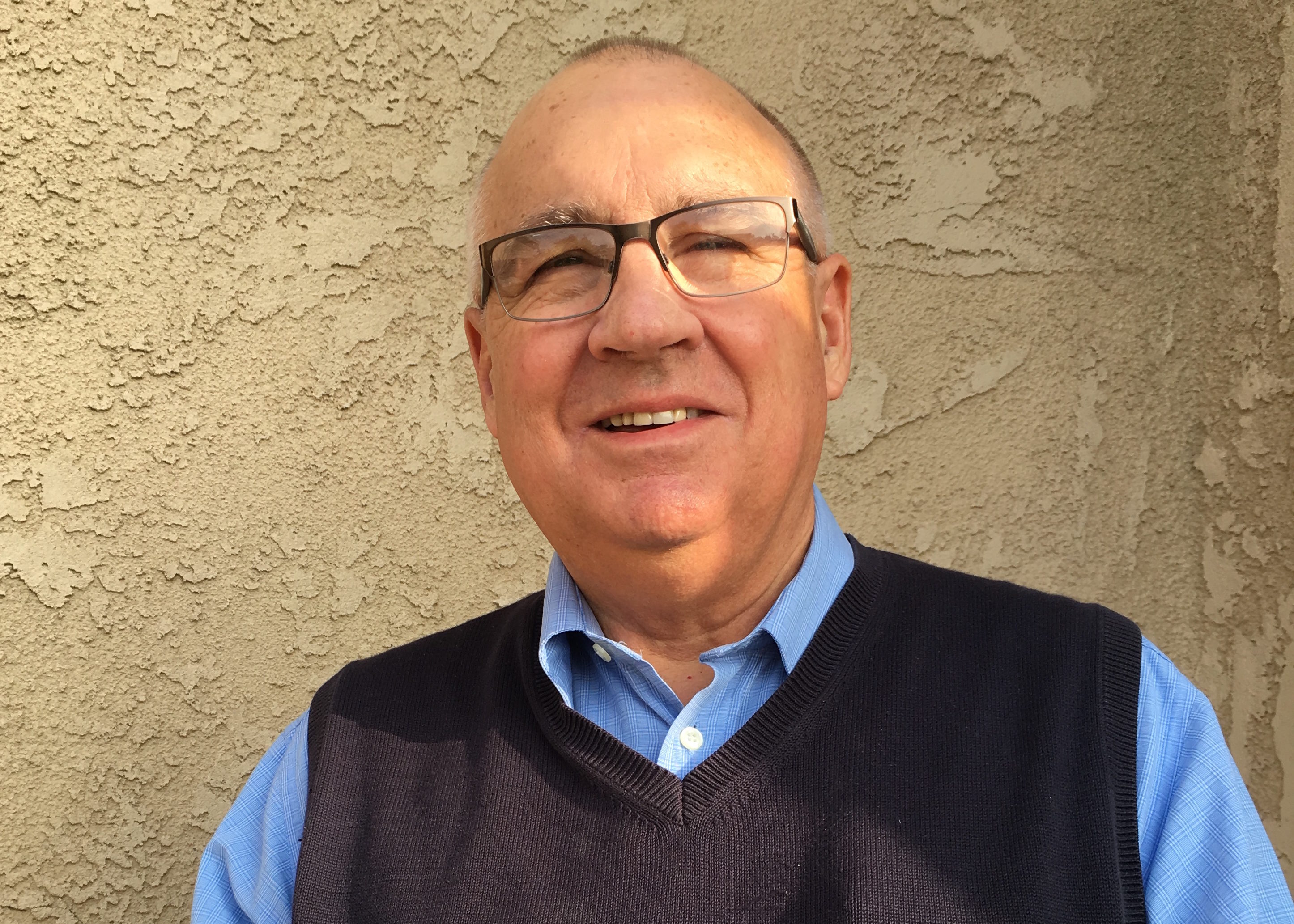

Over the years, Mary and I have led several Ocho Decisiones Que Sanan Tu Vida (Life’s Healing Choices) recovery groups. At a recent meeting for men, one of the guys accidentally brought the U.S. Mennonite Brethren Confession of Faith in Spanish to the meeting instead of our course workbook. Such an oversight can easily happen given the similarity of the books’ covers and size.

This got me thinking about how we need balance in our walk with God. On one hand we are invited to discover God and his teachings through responsible study and reflection of the biblical text. In many ways this is our starting point for living abundantly. But God also invites us to be healed of our hurts and destructive thinking patterns and habits in order to shape our lives “along the same lines as the life of his Son” (Rom. 8:29, The Message). The above two books represent these two parallel pursuits.
Truth that frees indeed
Jesus’ words to a group of new believers in John 8:32 highlight the need for knowing the truth both mentally and experientially in order to live well: “If you stick with this, living out what I tell you, you are my disciples for sure. Then you will experience for yourselves the truth, and the truth will free you” (The Message). Free to live with greater peace, joy and purpose. Free to love our brother and sister like Jesus loves us. And free to be salt and light in this hurting world.
Knowing about God and about the Bible should lead us to personally knowing God, who then releases spiritual and emotional healing in our lives as we obey him. However, only knowing mentally the truths of the Bible will not set us free.
Tragically, for many Christians their quest for Bible knowledge and doctrinal correctness far exceeds their quest to be healed of unhealthy attitudes and behaviors. How do I know? I have been there. I have lived it.
I know the sad reality of broken relationships, spiritual dryness and enslavement to destructive thinking and sins when I didn’t pursue spiritual, emotional and relational growth along with Bible study. Let’s look at the results when knowing about God and the Bible and personally knowing God are not in sync.
Broken relationships
Fractured and unhealthy relationships seem to flourish when one is dedicated primarily to Bible study more than building relationships. I am reminded of the example of three missionary men in Spain that I knew. Each graduated from the same conservative seminary. Doctrinally they were on the same page. Each had a vast knowledge of the Bible. Each was an excellent teacher. But their relationships with each other sadly waned. Simply said, they couldn’t work together. And in some cases, they had a difficult time partnering with others.
Spiritual lethargy
Spiritual dryness also sets in when it’s all head and no healing. Jack Deere, professor of Hebrew and Old Testament at Dallas Theological Seminary for 11 years, followed a warped understanding of the great commandment. Instead of loving God and neighbor above all else, Deere writes that his “greatest commandment had become, ‘Be right’ and the second greatest was, ‘Convince your neighbor that you are right!’”
The result of such twisted thinking was Deere’s growing loss of intimacy with the Bible’s author and meaningful fellowship with others. Eventually he resigned and dedicated himself as a pastor/teacher to knowing God and “strengthening the weak, healing the sick, binding up the injured, bringing back the strays, and searching for the lost” (Ezekiel 34:4). Deere shares his story in the book, Power Encounters Among Christians in the Western World.
In a seminary chapel service, Professor Hiebert suddenly stopped his talk and uttered the words, “I am spiritually dry.”
I shall never forget the confession offered by Waldo Hiebert, Mennonite Brethren pastor, church statesman and seminary professor, in the early 1980s when I studied at MB Biblical Seminary, now Fresno Pacific Biblical Seminary. In a seminary chapel service, Professor Hiebert suddenly stopped his talk and uttered the words, “I am spiritually dry.” His face portrayed the deep sadness in his heart. Out of this came a refocusing of his time and energies to live and teach about the spiritual disciplines.
I could say the same with equal resolve about seminary professors like D. Edmond Hiebert, Allen Guenther, Henry Schmidt, Elmer Martens and others in my seminary days. I have also been challenged by a number of pastor mentors like Robert Radtke, Robert Vogt and Leslie Mark. Each was able to beautifully balance biblical scholarship with upright lives and respectable relationships.
I could also add to this list the names of nonacademic brothers and sisters my wife and I have rubbed shoulders with over the years, including some from the immigrant community we last served. Their knowledge of God and his Scriptures is complimented with healthy living and lives that positively influence others.
Besetting attitudes and sins
Lastly, when the acquisition and communication of Bible knowledge takes center stage we often still struggle with the same sins and attitudes of the past and present unless properly dealt with. They are like an unbearable load on our back that rob us of our energies and life itself. Seemingly we cannot shake ourselves loose of them. And our kingdom mission is curtailed.
Since coming to Jesus in my early 20s I have experienced much transformation in many areas of my life. But not so in others. For example, for most of my adult life I have struggled with anger, bitterness, lust, people-pleasing, control issues, being funny and spiritual pride.
I certainly have not fully “known the truth that sets me free” in these areas. A consequence of some of these sins was almost suffering a nervous breakdown while serving overseas as a missionary, in spite of my excellent Bible school and seminary preparation. Only in the last 15 to 20 years has the three-steps-forward-two-steps-back process of being set free of these sins happened. I am not where I once was.
As a result, my relationships are much healthier. My inner joy and peace are on the increase. More than ever I am enjoying my walk with God. But there is still much road to travel. I will always be discovering the sinful stuff of my life as I line up my life with the life of Jesus.
James tells us, “Therefore confess your sins to each other and pray for each other so that you may be healed. The prayer of a righteous person is powerful and effective” (James 5:16). James literally states, “Be continually confessing your sins one to another and continually praying one for another.” Such practices with relation to sins are to be habitual activities in the life of a Christian and in the local church. Healing is the promised result. A healing which for sure can be physical in nature, but which oftentimes includes spiritual and emotional healing.
In the last two decades many churches have incorporated Celebrate Recovery, a 12-step recovery program, into their ministry flow. In more recent years Re:Generation, another biblical recovery process, is popping up in a growing number of churches. I am delighted that one church in our small community has begun this recovery ministry. I believe these, and similar ministries designed for all disciples of Jesus, not just the “down and outers,” are a gift to the local church.
I always look forward to these encounters. For me there have been few meetings in the life of the church that God has used so much to bring multifaceted healing to my life as these recovery-in Christ-when-life-is-broken meetings.
Paul tells us in 1 Corinthians 8:1 that “knowledge puffs up while love builds up.” Or in the words of the Amplified Bible, “Knowledge alone makes people self-righteously arrogant, but love that unselfishly seeks the best for others builds up and encourages others to grow in wisdom.” May we be these kind of kingdom Jesus-followers that are learning and being healed in order to better love and build up others of the faith and be salt and light in our hurting world.


Lynn Kauffman lives in Sanger, California. He works as a part-time chaplain at a major medical center and behavioral health facility in Fresno, California. Kauffman and his wife, Mary, served as missionaries in Spain for 20 years with MB Missions and have pastored several USMB congregations in the Fresno area.


















